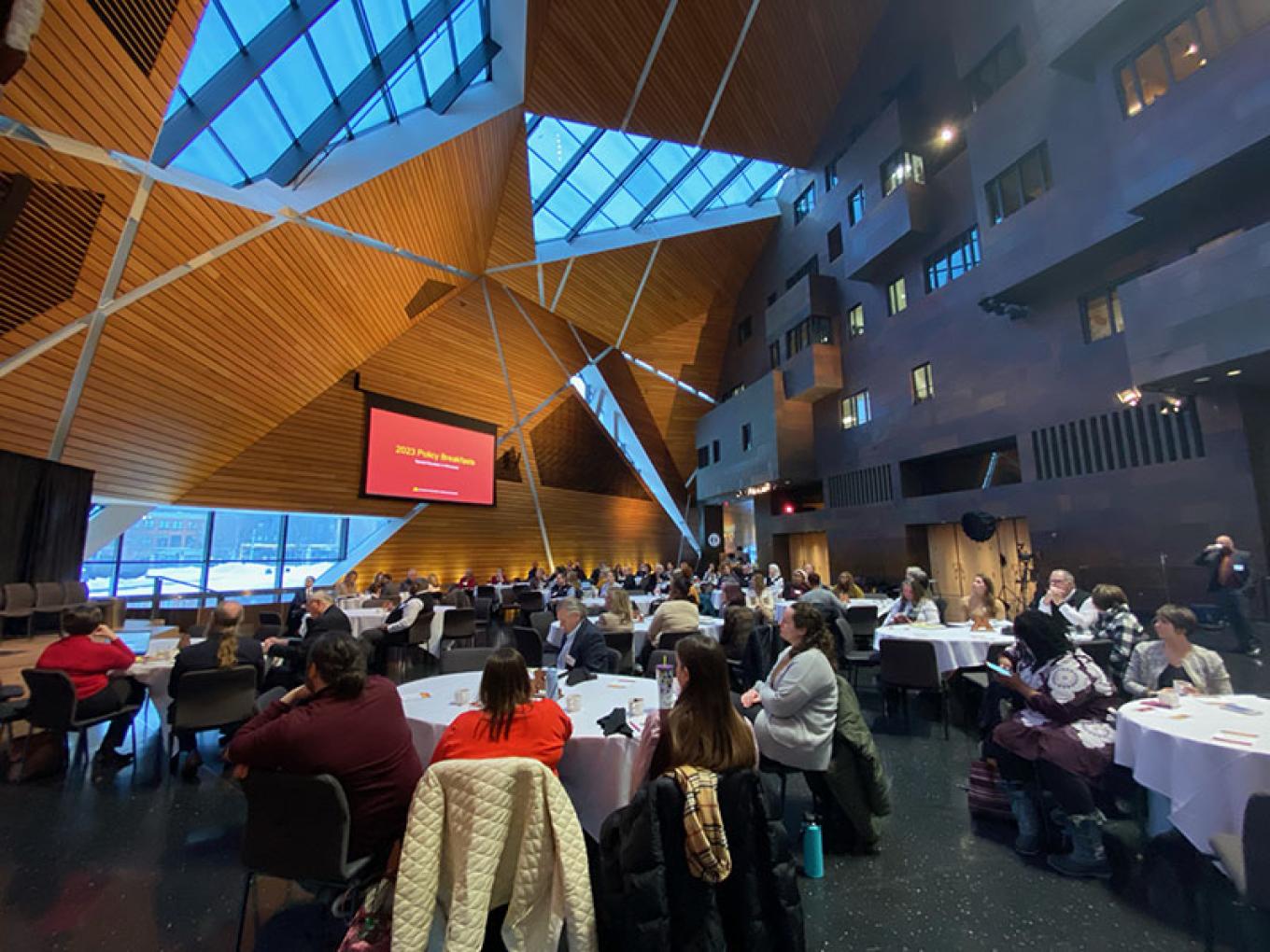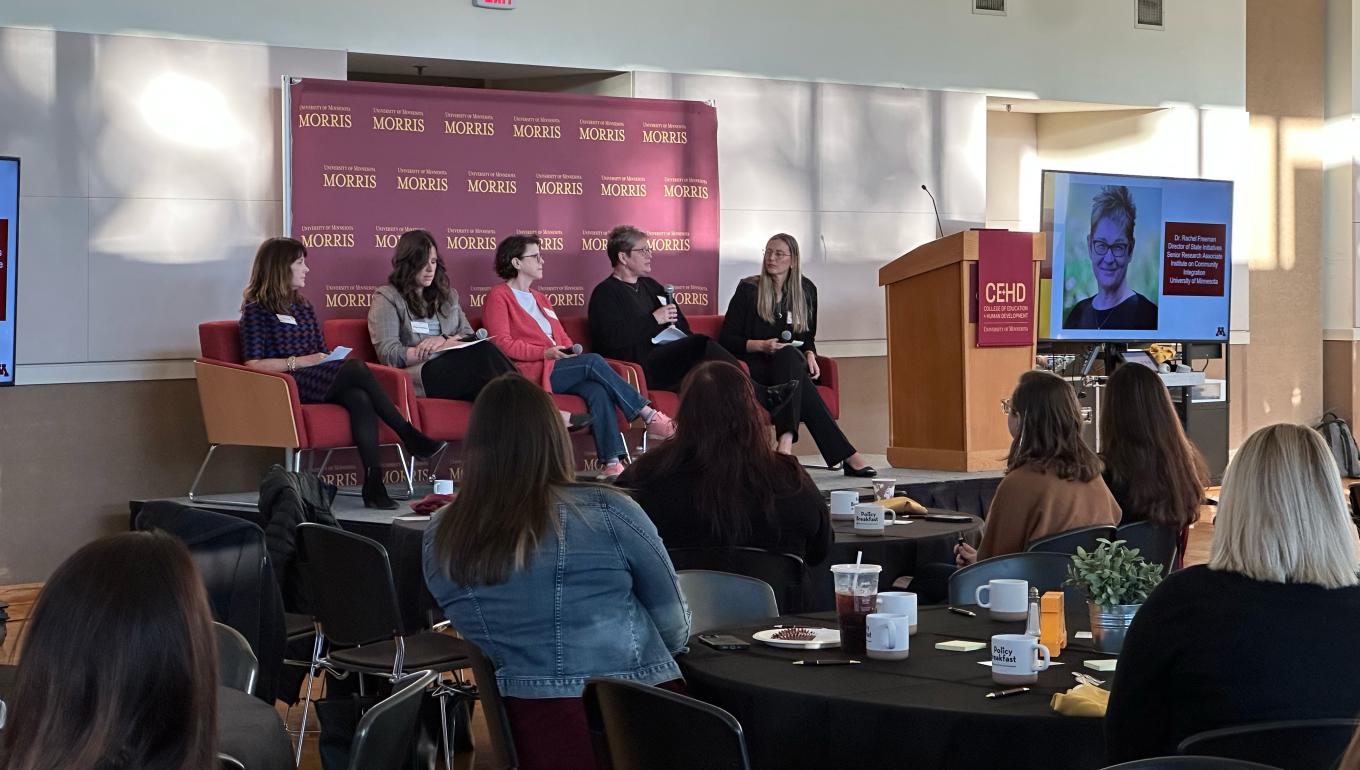Policy Breakfast Series
MAKING A DIFFERENCE THROUGH RESEARCH
CEHD's Policy Breakfast Series brings a research focus to the conversation about closing opportunity gaps in Minnesota. Policy Breakfast events examine the role of school leadership, early childhood education, reading and literacy, STEM education, teacher preparation, and children's mental health. Each event discusses the ways CEHD research can inform Minnesota's legislative policies.

Past events

January 2025: The state of children's mental health
On January 7, CEHD hosted more than 200 educational and clinical leaders and policymakers for a Policy Breakfast at McNamara Alumni Center on the University of Minnesota - Twin Cities campus for a discussion about the state of children's mental health. Despite the overwhelming challenges regarding children’s mental health in Minnesota, this Policy Breakfast showcased the impactful advocacy and evidence-grounded promising practices that are underway to support children throughout Minnesota.

October 2024: The state of children's mental health
On October 28, CEHD hosted more than 60 educational leaders and policy makers for a Policy Breakfast at Oyate Hall on the campus of the University of Minnesota, Morris. The panel discussed the state of children’s mental health in Minnesota. It identified and expanded upon recommendations that were released in early October from the Department of Human Services-formed Acute Care Transitions Advisory Council.

October 2023: The state of the state's accountability system
On October 30, 2023, CEHD hosted more than 120 educational leaders and policy makers for a Policy Breakfast at the Historic Chateau Theatre in Rochester, Minnesota. Katie Pekel, CEHD’s Executive Director of Educational Leadership, moderated a panel of experts, including: CEHD Dean Michael C. Rodriguez, Minnesota Department of Education (MDE) Commissioner Willie Jett, and Superintendent of Rochester Public Schools Kent Pekel.
January 2023: Minnesota PK-12 special education policy
On January 10, 2023, superintendents, directors of special education and legislators from across the state joined us for a panel. With a wide range of professional experience and research expertise, the panel discussed what policies and practices could exist in Minnesota at the state, system, and school level.
Equal opportunity statement
The University of Minnesota shall provide equal access to and opportunity in its programs, facilities, and employment without regard to race, color, creed, religion, national origin, gender, age, marital status, familial status, disability, public assistance status, membership or activity in a local commission created for the purpose of dealing with discrimination, veteran status, sexual orientation, gender identity, or gender expression.